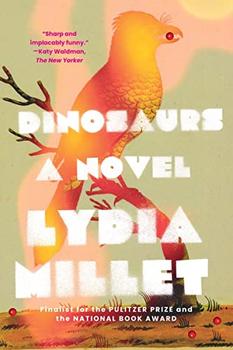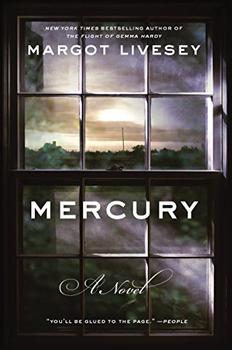Summary | Excerpt | Reviews | Beyond the book | Read-Alikes | Genres & Themes | Author Bio

Funny and heartbreaking, Magnificence is the story of a woman emerging from the sudden dissolution of her family.
Lydia Millet is "one of the most acclaimed novelists of her generation" (Scott Timberg, Los Angeles Times). This stunning novel introduces Susan Lindley, a woman adrift after her husband's death. Suddenly gifted her great uncle's Pasadena mansion, Susan decides to restore his extensive collection of preserved animals, tending to "the fur and feathers, the beaks, the bones and shimmering tails." Meanwhile, a menagerie of uniquely damaged humans - including a cheating husband and a chorus of eccentric elderly women - joins her in residence.
Millet's "flawlessly beautiful" (Salon) prose creates a setting both humorous and wondrous as Susan defends her inheritance from freeloading relatives and explores the mansion's many mysterious spaces. Funny and heartbreaking, Magnificence is the story of a woman emerging from the sudden dissolution of her family. Millet's trademark themes - evolution and extinction, children and parenthood, loss and wonder - produce a rapturous final act to the critically acclaimed cycle of novels that began with How the Dead Dream.
Magnificence is, like much of her work, aware of the issues close to the author’s heart - environmental degradation, extinction of languages and cultures, the decline of biodiversity - but anyone who’d call it, or any of her novels, “activist” is missing exactly what makes them anathema to that kind of writing: Millet’s fierce loyalty to character. Magnificence is painfully, wincingly, hilariously human...continued
Full Review
 (780 words)
(780 words)
(Reviewed by Morgan Macgregor).
Even if the book might not quite be about them, Magnificence, like much of Millet's fiction, features animals prominently. When asked about her use of animals in her novels, Millet said, in an interview with Bookforum:
"We lose the subject of animals when we move out of childhood. In childhood animals are all around us, and then we throw them out. In childhood they're everywhere, the stuff of our stories and our art and our songs, of our clothes and blankets, of toys and games. Then in adulthood they're distant symbols or objects. They're rudely ejected from our domain. They're frivolous or infantile, suddenly. They're what we eat or maybe pets. Sometimes they're what we kill. But this makes no sense. This impoverishes our imaginations. ...

If you liked Magnificence, try these:

by Lydia Millet
Published 2023
Over twelve novels and two collections Lydia Millet has emerged as a major American novelist. Hailed as "a writer without limits" (Karen Russell) and "a stone-cold genius" (Jenny Offill), Millet makes fiction that vividly evokes the ties between people and other animals and the crisis of extinction.

by Margot Livesey
Published 2017
A taut emotional thriller about love, obsession and the secrets that pull a family apart.